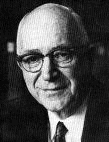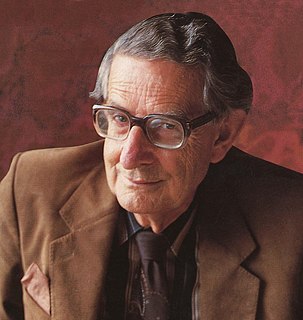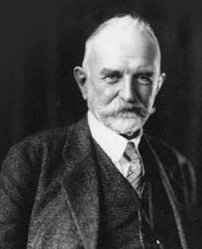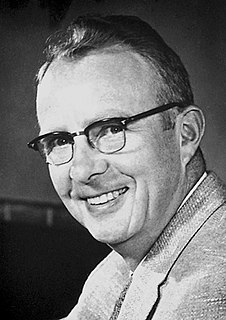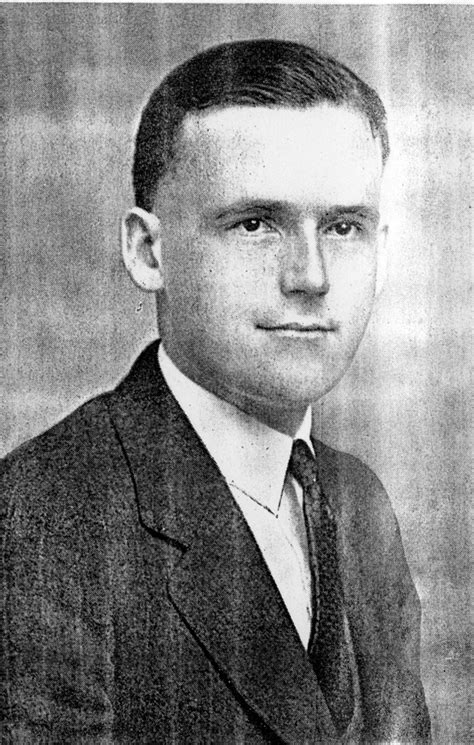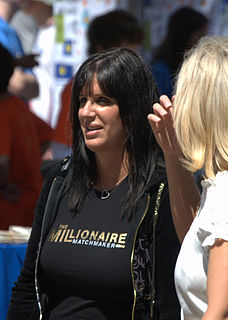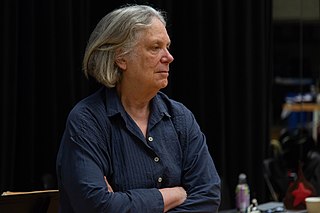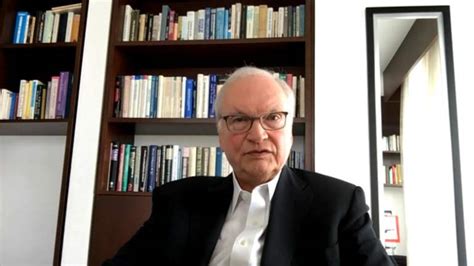Top 1200 Scientist Life Quotes & Sayings - Page 18
Explore popular Scientist Life quotes.
Last updated on December 4, 2024.
If it makes you feel any better, you’re not as bad as Keith. He was here earlier today and was so nervous, he literally kept looking over his shoulder.” Lee paused thoughtfully. “I think it might have been because Adrian kept laughing like a mad scientist at those old black-and-white movies he was watching.
You get these moments of thrill. There you are, at 3:00 in the morning, and you know something about how we evolved that nobody else in the world knows. It's a thrill of discovery. You make this breakthrough, and you find something. It's this wonderful, wonderful scavenger hunt when you got to the end. It's just so great to be a scientist.
We see an ever-increasing move toward inter and trans- disciplinary attacks upon problems in the real world ... The system scientist has a central role to play in this new order, and that role is to first of all understand ways and means of how to encode the natural world into "good" formal structures.
I really liked the idea of playing that kind of optimistic, super-intense, go-get-'em spirit combined with being a little bit of an outsider. I am really drawn to girls of that age in general, who believe they can be a waitress, scientist, actress, a dentist, a zookeeper...and who really aren't boy-crazy.
It is high time that laymen abandoned the misleading belief that scientific enquiry is a cold dispassionate enterprise, bleached of imaginative qualities, and that a scientist is a man who turns the handle of discovery; for at every level of endeavour scientific research is a passionate undertaking and the Promotion of Natural Knowledge depends above all on a sortee into what can be imagined but is not yet known.
Science is a field which grows continuously with ever expanding frontiers. Further, it is truly international in scope. Science is a collaborative effort. The combined results of several people working together is often much more effective than could be that of an individual scientist working alone.
A science can diagnose a cancer and can even find a cure for it, but it can't, and a scientist will be the first to say, it's can't help you to deal with the stress and disappointment and terror that comes with a diagnosis, and nor can it help you to die well, like Socrates, kindly, not railing against faith, but in possession of your own death. For these imponderable questions people have turned to mythos.
There is a beauty in discovery. There is mathematics in music, a kinship of science and poetry in the description of nature, and exquisite form in a molecule. Attempts to place different disciplines in different camps are revealed as artificial in the face of the unity of knowledge. All literate men are sustained by the philosopher, the historian, the political analyst, the economist, the scientist, the poet, the artisan and the musician.
I always felt that a scientist owes the world only one thing, and that is the truth as he sees it. If the truth contradicts deeply held beliefs, that is too bad. Tact and diplomacy are fine in international relations, in politics, perhaps even in business; in science only one thing matters, and that is the facts.
I've always said as a political scientist that "culture" is what we use when we can't explain things. I think it's more about accessibility. Part of the problem is that this is an expensive game [golf]. I know in a couple of places where there are black members, and they come from pretty much the same socioeconomic level that the white members come from.
I have been intimately involved in the techniques of genetic modification as a scientist since GMOs were first conceived. In that time, hundreds of studies and tests have been done on GMO safety - and we've seen no scientific evidence that GMOs are inherently more dangerous than crops produced by traditional plant breeding.
If you are well off and can afford to spend ten or twenty-five dollars a day to hire some patient soul to listen to your troubles you can be readjusted to the crazy scheme of things and spare yourself the humiliation of becoming a Christian Scientist. You can have your ego trimmed or removed, as you wish, just like a wart or bunion.
Fame is also won at the expense of others. Even the well-deserved honors of the scientist or man of learning are unfair to many persons of equal achievements who get none. When one man gets a place in the sun, the others are put in a denser shade. From the point of view of the whole group there's no gain whatsoever, and perhaps a loss.
But weightier still are the contentment which comes from work well done, the sense of the value of science for its own sake, insatiable curiosity, and, above all, the pleasure of masterly performance and of the chase. These are the effective forces which move the scientist. The first condition for the progress of science is to bring them into play.
A biologist, if he wishes to know how many toes a cat has, does not "frame the hypothesis that the number of feline digital extremities is 4, or 5, or 6," he simply looks at a cat and counts. A social scientist prefers the more long-winded expression every time, because it gives an entirely spurious impression of scientificness to what he is doing.
I'm convinced that a controlled disrespect for authority is essential to a scientist. All the good experimental physicists I have known have had an intense curiosity that no Keep Out sign could mute. Physicists do, of course, show a healthy respect for High Voltage, Radiation, and Liquid Hydrogen signs. They are not reckless. I can think of only six who have been killed on the job.
Faith just doesn't have anything to do with what I'm doing as a scientist. It's nice if you can believe in God, because then you see more of a purpose in things. Even if you don't, though, it doesn't mean that there's no purpose. It doesn't mean that there's no goodness. I think that there's a virtue in being good in and of itself. I think that one can work with the world we have.
From early childhood, I was interested in understanding how the world worked, and assumed I would be some kind of physical scientist or chemist. But the truth was, I didn't know there was another kind of world, the inner world, that was just as interesting, if not more relevant, than what was going on in the outside world.
As a health scientist at Columbia University, Les Roberts, pointed out, sooner or later people are going to be looking at a child in a wheelchair suffering from polio and will say 'the Americans did that to him'. So they continue policies which have similar effects i.e. organising the Taliban. This will come back to them too.
I must admit that any favorable mention of the flying saucers by a scientist amounts to extreme heresy and places the one making the statement in danger of excommunication by the scientific theocracy. Nevertheless, in recent years I have investigated the story of the unidentified flying object (UFO), and I am no longer able to dismiss the idea lightly.
When the signal reached LIGO from a collision of two stellar black holes that occurred 1.3 billion years ago, the 1,000-scientist-strong LIGO Scientific Collaboration was able to both identify the candidate event within minutes and perform the detailed analysis that convincingly demonstrated that gravitational waves exist.
Scientists need the infrastructure for scientific search to aid their research, and they need it to offer relevancy and ways to separate the wheat from the chaff - the useful from the noise - via AI-enabled algorithms. With AI, such an infrastructure would be able to identify the exact study a scientist needs from the tens of thousands on a topic.
Let people who do not know what to do with themselves in this life, but fritter away their time reading magazines and watching television, hope for eternal life... The life I want is a life I could not endure in eternity. It is a life of love and intensity, suffering and creation, that makes life worthwhile and death welcome. There is no other life I should prefer. Neither should I like not to die.
A visitor to Niels Bohr's country cottage, noticing a horseshoe hanging on the wall, teasing the eminent scientist about this ancient superstition. "Can it be true that you, of all people, believe it will bring you luck?'
'Of course not,' replied Bohr, 'but I understand it brings you luck whether you believe it or not.'
Scientific wealth tends to accumulate according to the law of compound interest. Every addition to knowledge of the properties of matter supplies the physical scientist with new instrumental means for discovering and interpreting phenomena of nature, which in their turn afford foundations of fresh generalisations, bringing gains of permanent value into the great storehouse of natural philosophy.
I'll tell you what you need to be a great scientist. You don't have to be able understand very complicated things. It's just the opposite. You have to be able to see what looks like the most complicated thing in the world and, in a flash, find the underlying simplicity. That's what you need: a talent for simplicity.
Mosts scientist are unable to arrive at a specific definition of biological evolution. “Biological evolution is… change in the properties of populations of organisms (you and me) that [happen during] the lifetime of a single individual. The changes in populations that are considered evolutionary are those that are inheritable via the genetic material from one generation to the next
For the theory-practice iteration to work, the scientist must be, as it were, mentally ambidextrous; fascinated equally on the one hand by possible meanings, theories, and tentative models to be induced from data and the practical reality of the real world, and on the other with the factual implications deducible from tentative theories, models and hypotheses.
I wanted to be a scientist. My undergraduate degree is in biology, and I really did think I might go off and be some kind of a lady Darwin someplace. It turned out that I'm really awful at science and that I have no gift for actually doing science myself. But I'm very interested in others who practice science and in the stories of science.
I think I set myself on a course to become a scientist around about the time that Carl Sagan's 'Cosmos' series was on television, and there really was no going back for me at that point, and then I went on to study space science and then get my Ph.D., then go aboard and work in the European Space Agency.
My father was the editor of an agricultural magazine called 'The Southern Planter.' He didn't think of himself as a writer. He was a scientist, an agronomist, but I thought of him as a writer because I'd seen him working at his desk. I just assumed that I was going to do that, that I was going to be a writer.
All the scientist creates in a fact is the language in which he enunciates it. If he predicts a fact, he will employ this language, and for all those who can speak and understand it, his prediction is free from ambiguity. Moreover, this prediction once made, it evidently does not depend upon him whether it is fulfilled or not.
I have flown twice over Mount St. Helens out on our West Coast. I'm not a scientist and I don't know the figures, but I have a suspicion that that one little mountain has probably released more sulfur dioxide into the atmosphere of the world than has been released in the last ten years of automobile driving or things of that kind that people are so concerned about.
Men like to provide for women and their families. It's in their DNA. I'm obviously no scientist, but I bet if you could hear a Y-chromosome talk, it would say, 'I want to provide and hunt.' When the woman is the primary breadwinner, it's going against nature. I'm not saying that it's bad or wrong, I'm just saying that it can feel off.
Incapable of conjuring up any facial expression that she did not learn from watching television, Jessica Alba plays a brilliant scientist who inadvertently acquires the ability to make herself invisible. This is not a gift Alba seems particularly comfortable with, as the last thing she needs is to be heard but not seen.
The elemental fact, present in our consciousness every moment of our existence, is: I am life that wills to live, in the midst of life that wills to live.... The essence of the humane spirit is: Preserve life, promote life, help life to achieve its highest destiny. The essence of Evil is: Destroy life, harm life, hamper the development of life
Our job should be like any other forensic scientist's - we should be truth seekers who are not partisan, who do not have any interest in the outcome, who call it as we see it no matter the consequences. But it seems a lot easier for chemists and anthropologists and pathologists to take that neutral role than it does for psychiatrists.
As a Christian, but also as a scientist responsible for overseeing the Human Genome Project, one of my concerns has been the limits on applications of our understanding of the genome. Should there be limits? I think there should. I think the public has expressed their concern about ways this information might be misused.



